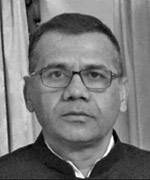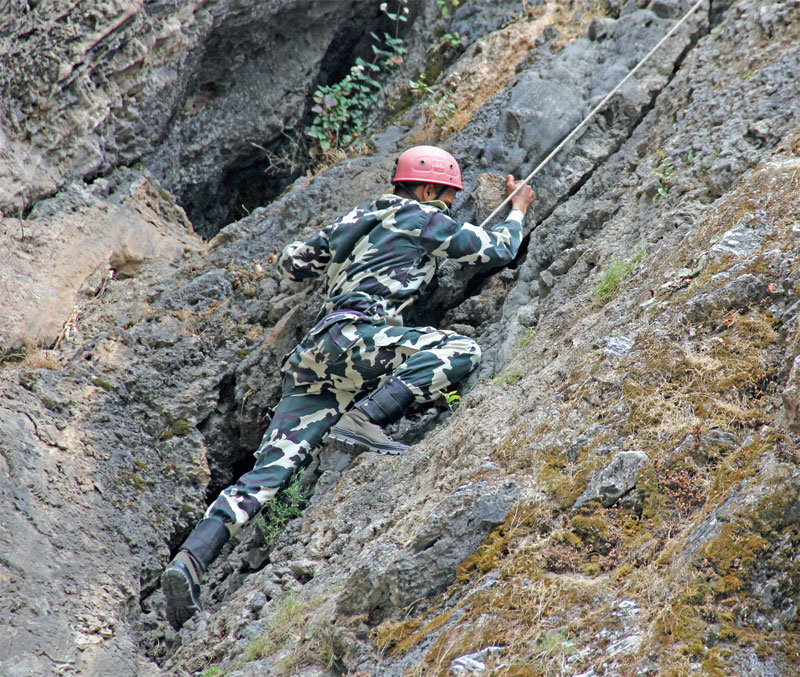Recruitment and training of CAPF officers need modernisation
 R.C. Sharma
R.C. Sharma
The central armed police forces (CAPFs), responsible for both internal security and border guarding, under the operational and administrative control of ministry of home affairs (MHA) are backbone of country’s security. They are hierarchical organisations in which officers’ command and lead troops as leaders of men for effective role execution.
For successfully leading men both during peace and war, it is imperative that recruitment is structured to suit organisational needs wherein selection is to find suitability and inclination for the job. With emerging internal and external security challenges and modern technology becoming integral part of security, the right man for the job is very essential.
Fitting square pegs in round holes will play havoc with CAPF ethos, tradition and operational capabilities. Hence, correct selection is essential for organisational stability. Selection is followed by basic/ pre-induction training. The basic training structure needs to make officers physically and mentally strong to meet current man management and national security challenges. It also must also make them capable of leading men by personal example and impart in them qualities for administrative and operational efficiency.
There is need to re-look at the present recruitment system and basic training of officers in CAPFs. The present methodology for the selection of officers must be through a scientific process as the current system is not adequate to assess the Officer Like Quality (OLQ) in the candidate.
With the introduction of Agnipath scheme’s proposal of lateral entry of ‘Agniveers’ into CAPFs, it becomes more imperative to analyse the reforms needed in the recruitment and basic training structure. The scheme will make man management and group cohesiveness difficult. There will be a need for fresh training in weaponry and ground specific needs of CAPFs to mould Agniveers as per organisational role and task. There will also be issues of ego and personality clash since ‘Agniveers’ will be junior in hierarchy despite putting in four years of service. This will lead to disciplinary issues, impact homogeneity of the unit/ subunit and operational effectiveness. This aspect also needs to be included in basic training syllabus with special reference to ‘Agniveers’ and ‘Agnipath’ scheme.
Current Recruitment System
The nodal agency for recruitment of officers for CAPFs is Union Public Service Commission (UPSC). Prior to that selection was through the Special Selection Board (SSB) wherein the nodal agency was one of the CAPFs in rotation. There is not much change in the present system of recruitment of officers in CAPFs from the previous one, except for minor variations in procedure.
In the present system, written test is followed by a physical standard test, a medical test and an interview. In the previous recruitment system, the medical test was conducted after the interview. The present system is not scientific and tailored to analyse the personality of an individual to assess suitability for CAPFs. There are no psychological tests or personality assessment parameters for OLQ. Even if some parameters are there, it is impossible to assess them in 20 to 30 minutes by the interview board. Urgent reforms are needed to make the recruitment system practical. It needs to be tailored to test the suitability and inclination of candidates through analysis of his personality for the specialised job of border and internal security.
The prevalent system of recruitment of officers in CAPFs is as any other general recruitment made to select officers in group ‘A’ services in government sector. The interview board is not a selection board like Service Selection Board (SSB), that tests aptitude and assesses suitability. Interview board only tests knowledge. Knowledge, which does not reflect personality, becomes the basis of selection. Earlier average age of selection was about 23 whereas in the present UPSC system, the recruitment age has been increased by four years, making it 27 years. In the earlier system, generally candidates used to be in the academy by 25 years of age and passed out by 26.
In the present challenging security environment and harsh service conditions, CAPFs are the last choice of youngsters. Candidates exhaust all options before they decide to apply for group ‘A’ job in CAPFs when they are about to reach 25 years of age. In the current recruitment system, the gestation period is abnormally long. It takes about one and a half to two years by the time offer of appointment is issued. Hence, the average age of joining the academy for basic training is about 27 years. The individual joins the unit by 28-29 years of age. For example, those who applied in 2018 were issued offer of appointment in end 2020 after about almost three years of application.
The abnormally long recruitment process helps flight of talent from CAPFs to the civil services. The residual candidates who exhaust all other avenues join CAPFs. The individual and not the government is the beneficiary of this long selection procedure. The recruitment process only caters for filling of vacancies and does not take into consideration the inclination and suitability of the candidate for CAPFs. That probably is the reason for selection of B.Tech and IIM graduates who later find themselves misfit in the service.
Given this, new parameters need to be drawn as to what type of officers are required in CAPFs. The CAPFs require officers to command, lead and motivate men for successful role execution. Suitability of officers for such important assignment can only be assessed through a scientific selection procedure. The present system is neither scientific nor suitable for service requirement of CAPFs and needs a major overhaul.

You must be logged in to view this content.

